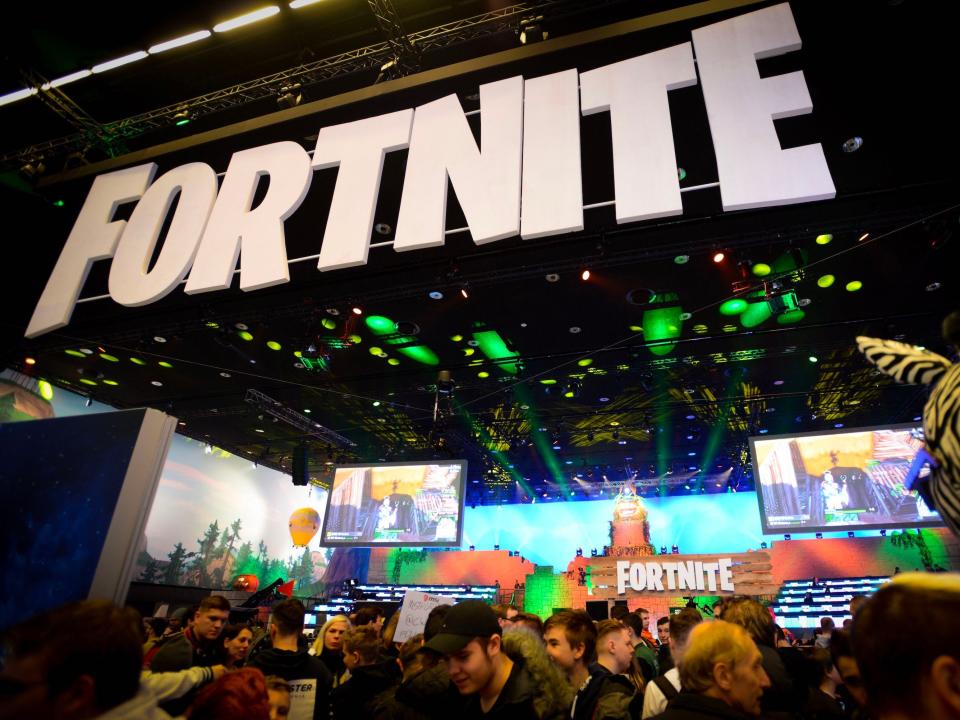Epic Games is suing Google over its decision to boot 'Fortnite' from the Play Store

BARTOSZ SIEDLIK/AFP via Getty Images
Epic Games, developer of the popular video game "Fortnite," filed a lawsuit Thursday against Google, claiming its app store policies are anticompetitive.
Google kicked "Fortnite" out of its Play Store after Epic bypassed its ban on in-app purchases that don't use Google's own payment systems.
Epic and other app developers have argued that the policy constitutes monopolistic behavior by unfairly advantaging Google.
Epic also filed a lawsuit against Apple earlier on Thursday over its decision to boot "Fortnite" from the App Store on similar grounds.
Both companies' dominance in mobile app marketplaces has fueled antitrust concerns among lawmakers and regulators.
Epic Games, the maker of "Fortnite," took its second swing at a tech giant on Thursday by filing a lawsuit against Google, claiming that it's engaged in monopolistic behavior with its Play Store and Android operating system policies.
Earlier on Thursday, Google removed "Fortnite" from its Play Store after Epic rolled out an update that allowed users to pay it directly for in-app purchases, instead of going through Google's existing payment systems — a violation of Play Store terms.
"While Fortnite remains available on Android, we can no longer make it available on Play because it violates our policies. However, we welcome the opportunity to continue our discussions with Epic and bring Fortnite back to Google Play," a Google spokesperson told Business Insider.
Epic claims in the lawsuit that the policy "harms app developers and consumers by inserting [Google] as a mandatory middleman in every in-app transaction" and therefore allowing it to charge an unnecessarily steep 30% on each transaction.
Google's decision to boot "Fortnite" came just hours after Apple similarly removed the game from its App Store, also citing Epic's decision to circumvent the company's payment systems, which charge the same 30% commission. Epic filed a lawsuit against Apple over the issue earlier on Thursday.
But Epic's lawsuit against Google is broader in scope and claims that Google's rules for Android device makers and app developers unfairly advantage it over competitors.
Epic had kept "Fortnite" out of Google's Play Store for more than 18 months before caving in April. Before then, Android users could only download the game through the Epic Games app, but the company reversed course begrudgingly, claiming Google put third-party app stores at a "disadvantage" and accused it of using measures like "scary, repetitive security pop-ups" to warn users about third-party software.
Epic took aim at some of those same practices in its lawsuit Thursday, citing: Google's requirement that phone manufacturers pre-install other Google services like Gmail, Google search, Google Maps, and YouTube; that Google "interferes" with their ability to provide third-party app stores on phones; and that it subjects users to "a dozen steps" and "multiple dire warnings" about possible security issues with third-party software.
"These restrictions effectively foreclose competing app stores—and even single apps—from what could be a primary
distribution channel," Epic alleged.
"The open Android ecosystem lets developers distribute apps through multiple app stores," Google's spokesperson told Business Insider. "For game developers who choose to use the Play Store, we have consistent policies that are fair to developers and keep the store safe for users."
Epic also claimed that Google tried to avoid public scrutiny of its policies by "offering it preferential terms on side deals," which Epic turned down.
The company's lawsuits against Google and Apple come as lawmakers and regulators growing increasingly concerned about anticompetitive behavior by tech giants and digital marketplaces.
Last month, Sundar Pichai, CEO of Google parent company Alphabet, Apple CEO Tim Cook, Facebook CEO Mark Zuckerberg, and Amazon CEO Jeff Bezos faced a grilling from lawmakers during a congressional antitrust hearing.
Read the original article on Business Insider

